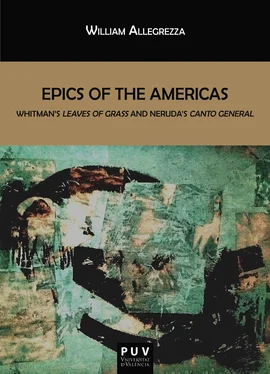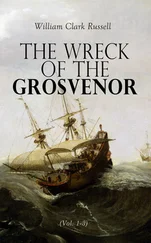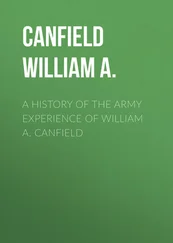William Allegrezza - Epics of the Americas
Здесь есть возможность читать онлайн «William Allegrezza - Epics of the Americas» — ознакомительный отрывок электронной книги совершенно бесплатно, а после прочтения отрывка купить полную версию. В некоторых случаях можно слушать аудио, скачать через торрент в формате fb2 и присутствует краткое содержание. Жанр: unrecognised, на английском языке. Описание произведения, (предисловие) а так же отзывы посетителей доступны на портале библиотеки ЛибКат.
- Название:Epics of the Americas
- Автор:
- Жанр:
- Год:неизвестен
- ISBN:нет данных
- Рейтинг книги:3 / 5. Голосов: 1
-
Избранное:Добавить в избранное
- Отзывы:
-
Ваша оценка:
- 60
- 1
- 2
- 3
- 4
- 5
Epics of the Americas: краткое содержание, описание и аннотация
Предлагаем к чтению аннотацию, описание, краткое содержание или предисловие (зависит от того, что написал сам автор книги «Epics of the Americas»). Если вы не нашли необходимую информацию о книге — напишите в комментариях, мы постараемся отыскать её.
Epics of the Americas — читать онлайн ознакомительный отрывок
Ниже представлен текст книги, разбитый по страницам. Система сохранения места последней прочитанной страницы, позволяет с удобством читать онлайн бесплатно книгу «Epics of the Americas», без необходимости каждый раз заново искать на чём Вы остановились. Поставьте закладку, и сможете в любой момент перейти на страницу, на которой закончили чтение.
Интервал:
Закладка:
Before turning to Neruda’s version of the lyric-epic, it is necessary to mention that there was a lyric tradition in Anglo and Latin America when Whitman and Neruda wrote. Compared to a poet like William Cullen Bryant, Whitman’s work is definitely innovative. Neruda’s work was formally similar to poets writing in Latin America during his time. More than Whitman, he drew on the traditions of the lyric in his writing. If anything was specifically innovative about his work among his contemporaries, it was his focus on politics. Yet, the lyric alone is not a nation building piece—it lacks a central force important to Whitman’s and Neruda’s goals, so while a discussion of the history of epic in the Americas helps explain their desires to write an epic, a similar discussion of the history of the lyric in the Americas would not serve our present purpose. The lyric alone could not achieve what these two poets were aiming for, nor could the epic by itself.
The actual form of Neruda’s lyric-epic follows Whitman’s in Leaves of Grass somewhat loosely. In Canto general the work consists of numerous lyrics tied together by an overarching yet fragmented narrative. Unlike Whitman, Neruda brings a timeline into the narrative. In general the work begins with a new genesis in Latin America and moves to the present day. More specifically, the work begins with Latin American genesis; moves to Neruda’s claim to be able to sing for Latin Americans; then shifts to present the Europeans that terrorized Latin Americans and the liberators of Latin America; then it moves to discuss those who betrayed Latin American freedom; then, after criticizing the betrayers, shifts to present images of Chile and the people of Latin America, then calls for the people of Latin America to take power for themselves; then portrays Neruda’s own fugitive experience; then shifts to hopes for Latin America and songs of the ocean; and lastly finishes with parting songs. This structure is more complicated than Whitman’s; however, the basic narrative push in Canto general is the history of communism’s growth under tyranny and through liberty in Latin America. That said, because of Neruda’s political focus, he does not, as Whitman does, use the lyric to treat primarily the poetic “I.” In a certain sense, Neruda tries to remove the poetic ego from the lyric-epic. In other words, Whitman’s work centers around introducing the reader to a paradigm American “I.” Whitman’s version of the American individual, as many Americans, is often seen as overly insular, as only concerned with itself. 11 Neruda attempts through interpreting Whitman to present a more citizen-oriented style. Many of the lyrics in Canto general are written from the perspective of other people, of dead workers, of poor people, of departed poets. Neruda attempts to shift the focus away from how the individual stays an individual within the Union to showing how the individual works with a union that is created by individuals. Since Neruda believes that Whitman is a poet of the people, Neruda takes Whitman’s lyric-epic and tries to create a lyric-epic that is still focused on the people but from a communist perspective, which is not to suggest that the individual is not important to Neruda’s work. Like Whitman in Song of Myself , Neruda makes his claim to be a worthwhile poet of the Americas in an individual experience in Alturas de Macchu Picchu ( The Heights of Macchu Picchu ). In these sections of Leaves of Grass and Canto general , Whitman and Neruda start with a lyric moment as a foundational for their democratic and communist political systems respectively. As the works progress, Whitman focuses on an individual’s freedom, and Neruda focuses on an individual’s responsibility towards others.
Besides sharing similar theoretical concerns for writing an American lyric-epic, Whitman and Neruda draw upon several common epic and lyric strategies. First, they attempt to provide what Northrop Frye labels the “encyclopedic” form of the epic (56). They include catalogues which act to chronicle the variety of their periods. Next, they attempt to create foundational myths for their societies. This attempt includes forming new languages, politics, and religious forms for their country members. 12 Even more, they both draw upon biblical tones or the high style of epic. Considering that both works were intended as foundational for their societies, the biblical tones act to mimic the Bible as well as to create new bibles for their cultures. Like Virgil who expresses the inevitability of Rome, both poets express the inevitability of their perfect societies. Though they differ as to the content of those societies, they share several ideas in common, such as the importance of the people and the need for the people to have independent cultural traditions. Also, both writers engage a main character, who in both cases is the poetic “I,” whose experiences form the structural basis of the works. Concerning the traditional lyric strategies, both poets at times create poems that appear to let the reader in on a personal revelation. In addition, many of the poems rely on the lyric quality of breaking the temporal, of heightening the importance of the moment. 13 Whitman uses this quality for stressing the individual, while Neruda uses this temporal rift to show the relationship between the part and the whole. The poets both use the lyric “I” to explore themes that are personally important, but which appear important to the community.
Beyond these traditional characteristics, Leaves of Grass and Canto general share many other characteristics. First, each writer uses a shifting “I” to explore his main themes. In Leaves of Grass , there are several versions of the poetic “I”—the “I,” the “me myself,” the “me;” furthermore, Whitman confronts the reader with the impossibility of designating an identity for his poetic “I.” Neruda, on the other hand, uses the “I” to shift personas. The “I” shifts from Neruda the poet to numerous figures speaking about their experiences and ideals. Several reasons emerge for the poetic “I” in both poems. The poetic “I” acts as a democratic figure. For Whitman, the poetic “I” offers the only serious option for a poem which is intended to strengthen the democratic spirit. For Neruda, the “I” also acts symbolically in the position of pure democracy. In his case the “I” shifts in creating the perception of a pure democratic process, i.e. communism, that is composed of myriad individual actions. In other words, for Neruda there can be no single hero but instead heroes, since a single hero would be representative of an aristocratic/capitalistic legacy. Second, both writers engage in a progressive rewriting of history. Third, both writers engage in the mythification of Native Americans. Whitman mentions Native Americans, but he does not engage in their specific problems. Neruda discusses the Araucanians as a major component of Chilean history; however, his portrayal of the necessary destruction of native tribes has been the center of much critical lambasting of his knowledge of them. Fourth, both writers stress the primacy of fraternity or comradeship. Whitman considers fraternity to be essential to democracy. Neruda considers comradeship as a basis for communism. Fifth, as mentioned above, both writers share a belief in the education of the individual with a new language. Their works attempt to create this new language for their people. Whitman conceives of Leaves of Grass as a “language experiment;” he intends to create a new expression of language to match the experiment of democracy in the United States. Neruda attempts to create a new language to function as a means of expression for people to pass beyond capitalism. Sixth, both writers use nature images to express the people, and they both believe that each person can be a poet. Many other similarities between the writers exist, such as content similarities, including a stress on erotic love, the body, the physical, and anti-intellectualism, 14 and textual similarities, including alliteration, parallel constructions, and enumeration.
Читать дальшеИнтервал:
Закладка:
Похожие книги на «Epics of the Americas»
Представляем Вашему вниманию похожие книги на «Epics of the Americas» списком для выбора. Мы отобрали схожую по названию и смыслу литературу в надежде предоставить читателям больше вариантов отыскать новые, интересные, ещё непрочитанные произведения.
Обсуждение, отзывы о книге «Epics of the Americas» и просто собственные мнения читателей. Оставьте ваши комментарии, напишите, что Вы думаете о произведении, его смысле или главных героях. Укажите что конкретно понравилось, а что нет, и почему Вы так считаете.












